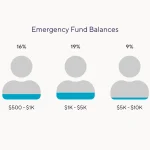
Let’s be honest—managing money isn’t exactly a walk in the park. Between budgeting, investing, and planning for retirement, it’s easy to feel overwhelmed. That’s where AI-driven personal finance tools come in. These digital assistants are transforming how we handle wealth, making financial management smarter, faster, and—dare we say—even a little fun.
Why AI in Finance Isn’t Just a Gimmick
You’ve probably heard the buzz about AI, but here’s the deal: it’s not just hype. AI-driven tools analyze vast amounts of data in real-time, spotting patterns humans might miss. Think of it like having a financial advisor who never sleeps, eats, or takes vacations—just pure, unbiased number-crunching.
Key benefits:
- Automated budgeting: Apps track spending and categorize expenses without manual input.
- Predictive analytics: AI forecasts cash flow issues before they happen.
- Personalized advice: Algorithms tailor recommendations based on your habits and goals.
How AI Tools Are Changing the Game
1. Smarter Budgeting (Without the Spreadsheets)
Gone are the days of scribbling expenses in a notebook. AI-powered apps like Mint or YNAB sync with your accounts, categorize transactions, and even nudge you when you’re overspending. It’s like having a financial coach in your pocket—minus the judgmental looks.
2. Investment Optimization
Robo-advisors like Betterment or Wealthfront use AI to build and rebalance portfolios based on your risk tolerance. No PhD in finance required. These tools adjust strategies dynamically, reacting to market shifts faster than any human could.
3. Debt Management Made Easier
AI doesn’t just help you grow wealth—it can dig you out of debt, too. Apps analyze your loans, suggest payoff strategies (like the avalanche or snowball method), and even negotiate lower interest rates on your behalf. Talk about a stress reliever.
The Human Touch: Where AI Falls Short
Sure, AI is powerful, but it’s not perfect. Emotional intelligence? Not its strong suit. Major life events—like buying a home or navigating a career change—often require a human advisor’s nuance. AI tools excel at data, but they can’t replace the empathy and big-picture thinking a flesh-and-blood planner brings.
Where humans still win:
- Complex tax planning
- Estate planning
- Behavioral coaching (ever tried convincing an algorithm to stop emotional spending?)
Current Trends Shaping AI Finance Tools
The space is evolving fast. Here’s what’s hot right now:
| Trend | Why It Matters |
| Voice-activated assistants | Ask Alexa for your net worth—no app needed. |
| AI-powered fraud detection | Spot unusual transactions before they become problems. |
| Hyper-personalization | Tools learn your habits and adapt over time. |
The Future: Where Do We Go From Here?
Imagine AI that doesn’t just react but anticipates. Tools that predict career changes, adjust savings goals before you even think of them, or simulate financial outcomes based on global economic shifts. We’re not there yet—but we’re close.
One thing’s certain: AI isn’t replacing wealth management. It’s redefining it. And honestly? That’s a future worth investing in.

